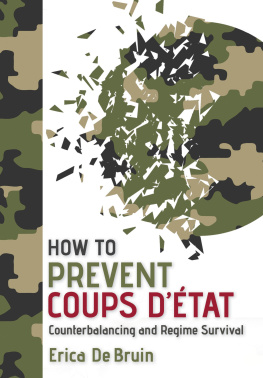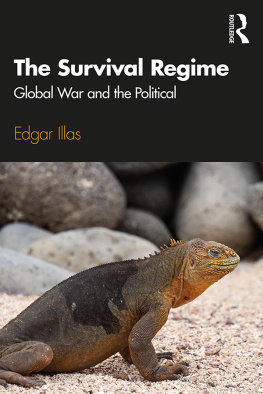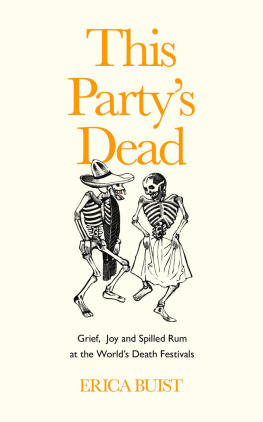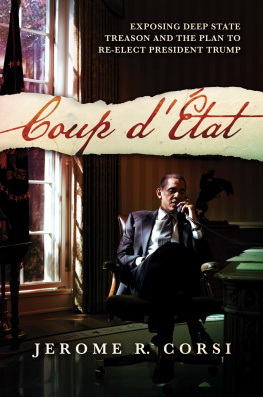Tables and Figures
Tables
. Causal mechanisms linking counterbalancing to coup failure
. Causal mechanisms linking counterbalancing to the incidence of coup attempts
. States included in the statistical analysis
. Cross tabulation of coup outcomes and counterbalancing
. Descriptive statistics for dependent and independent variables (coup outcomes)
. Coup success: Logit results
. Correlations: Coup success, counterbalancing, and military strength
. Evidence on causal mechanisms during sixteen coup attempts
. Cross tabulation of coup attempts and counterbalancing
. Descriptive statistics for dependent and independent variables (coup attempts)
. Coup attempts: Logit results
. Coup attempts: Survival analysis
. Correlations: Coup attempts, new counterweights, and military strength
. Summary of case outcomes: New counterweights and coup attempts
. The context of counterweight creation in Ghana, Sierra Leone, Mali, and Cuba
. Comparing coup-proofing strategies and forms of counterbalancing
. Coup attempts: Logit results with forms of counterbalancing disaggregated
. Summary of case outcomes: Counterbalancing and the escalation of coups to civil war
. Coup attempts included in the statistical analysis
Figures
. Map of the highest number of counterweights employed, 19602010
. Counterbalancing by region
. Coups and counterbalancing over time
, model 3)
, model 4)
. Change in coup risk with the creation of a new counterweight
. Counterbalancing by regime type
Acknowledgments
This book has benefited from the feedback and support of many people. It has its origins in my time in the Department of Political Science at Yale University. Steven Wilkinsons enthusiasm for this project got it off the ground, and I have benefited from his sound advice at every step in the process. I could not have asked for a better mentor. I was also particularly fortunate to have the opportunity to learn from Thad Dunning, Bruce Russett, and Nicholas Sambanis, who provided generous and thoughtful comments on the earliest iterations of ideas that made their way into this book. Other professors at Yale, including Alexandre Debs, Susan Hyde, Stathis Kalyvas, Adria Lawrence, Nuno Monteiro, Frances Rosenbluth, Susan Stokes, and Elisabeth Wood, were wonderful teachers and mentors. I owe tremendous thanks to my graduate school peers as well. I entered with an impressive cohort of women, including Allison Carnegie, Adi Greif, Corinna Jentzsch, Calvert Jones, Bonny Lin, Cory McCruden, and Angelika Schlanger, all of whom I learned a great deal from. Special thanks are due to Callie in particular for her willingness to talk about coups any hour of the night. Early feedback from Matthew Cebul, Julia Choucair-Vizoso, Will Nomikos, and Pia Raffler was also helpful in developing the central arguments in the book.
Peter Bergen, Anatol Lieven, Rajan Menon, and Nicholas Thompson at the New America Foundation fostered my interest in research, and taught me a great deal about their own research and writing processes. I benefited enormously from serving as a research associate to Jim Goldgeier and Lee Feinstein at the Council on Foreign Relations. Thanks are also due to Stephen Biddle, Steven Cook, and Daniel Markey at the Council for their advice and support. Robert Legvold and Scott Martin at Columbia University first encouraged me to pursue a Ph.D., and I will always be grateful.
Along the way, I benefited from feedback at a number of workshops and conferences. The ideas in this book began to take shape at the Empirical Implications of Theoretical Models Summer Institute at the Harris School at the University of Chicago, led by Scott Ashworth and Ethan Bueno de Mesquita. Both were generous with their time, and I thank them for that. Mentoring faculty in residence, including Bethany Lacina, Maggie Peters, and Daniel Berger, provided invaluable feedback and advice on navigating academia more generally. I also benefited from attending the Institute for Qualitative and Multi-Method Research at Syracuse University, as well as from feedback from participants in the Journeys in World Politics Workshop at the University of Iowa, Conflict Consortium Virtual Workshop, Virtual Workshop on Intrastate Conflict and Violence at George Washington University, and Workshop on Intra-State Peace and Security at the University of Mannheim.
Many scholars provided feedback that improved the manuscript in concrete ways. I thank Risa Brooks for reading numerous drafts of my work and always giving thoughtful comments. I have also been fortunate to receive feedback from Holger Albrecht, Ariel Ahram, Yelena Biberman-Ocakli, Jessica Maves Braithwaite, Adam Casey, Damon Coletta, Christian Davenport, Kerstin Fisk, Hanne Fjelde, John Ishiyama, Jaclyn Johnson, Drew Kinney, Peter Krause, Patrick M. Kuhn, Yonatan Lupu, Jacqueline McAllister, Will Moore, Deborah Norden, Lindsay Reid, Lee J. M. Seymour, Paul Staniland, Harold Trinkunas, Jessica Weeks, and David Andrew Weinberg. I thank Kristen Harkness, Paul Lorenzo Johnson, Max Margulies, Theo McLauchlin, Jun Koga Sudduth, Ches Thurber, Peter B. White, and other members of the Security Force Loyalty Contact Group for their feedback on many different aspects of the arguments and data presented in this book. I have learned so much from their work and from our conversations. In building the dataset in this book, I also benefited from helpful conversations with Sabine Carey, Aila Matanock, Michaela Mattes, and Jonathan M. Powell. This book owes an intellectual debt to Caitlin Talmadge and Sheena Greitens, whose own work has indelibly influenced my own. For book advice over the years, I am grateful to Jonathan Caverley, Jeff Colgan, Danielle Lupton, and Gwyneth McClendon, among others.
I am grateful to Kelly Kadera, Ashley Leeds, and Sara Mitchell for their efforts to foster a supportive climate for women in academia. I have benefited so much from their advice and guidance. I thank Eva Bellin, Mary Gallagher, Kelly Greenhill, Courtney Hillebrecht, Vesla Weaver, and Krista Wiegand for sharing the ups and downs of their own career trajectories and their advice on publishing; hearing about their varied paths to success has motivated me more than they can know. Rebecca Barrett-Fox cultivated an online writing community that sustained me from the initial book proposal through final manuscript revisions.
At Hamilton College, I have been fortunate to work in a department full of wonderful colleagues. I thank Phil Klinkner for his friendship, and for advocating for me in ways both big and small. I am grateful to Alexsia Chan, Gbemende Johnson, Kira Jumet, Heather Sullivan, and Joel Winkelman for their camaraderie, and as well as for their feedback on different parts of the manuscript. I thank Frank Anechiarico, Alan Cafruny, Peter Cannav, Robert W. T. Martin, Omobolaji Olarinmoye, Stephen Orvis, David Rivera, Sharon Rivera, and Gary Wyckoff for making the Government Department a supportive environment for junior faculty. Joan Kane provided crucial moral and logistical support and encouragement throughout the process. At Hamilton, I have benefited from generous support from the Dean of Facultys office in the form of sabbatical and research funding; I thank Margaret Gentry, Suzanne Keen, Gill King, Linda Michels, Onno Oerlemans, Sam Pellman, and Patrick Reynolds for their support. Amy Lindner and Jeff Ritchie in the grant office also provided a great deal of assistance.










